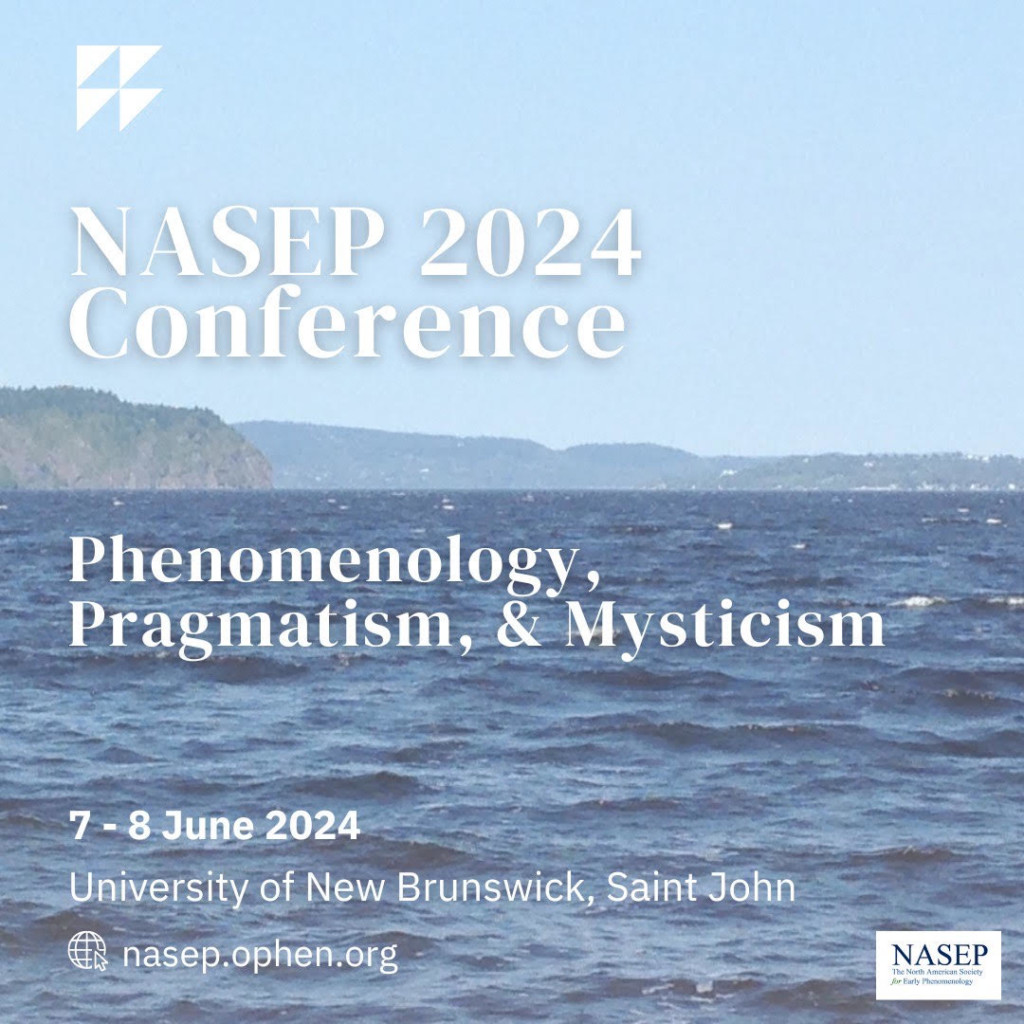The North American Society for Early Phenomenology
Phenomenology, Pragmatism, and Mysticism
7-8 June 2024
University of New Brunswick, Saint John, New Brunswick
Keynote Speakers:
Patrick Eldridge (University of New Brunswick, Saint John)
“Mahnke and Husserl: Taking Leibniz into Phenomenology”
Jason Bell (University of New Brunswick, Fredericton)
“The Mystical Element of Early Phenomenology”
Theme
Phenomenology and pragmatism have often dealt with overlapping concerns while neglecting to communicate. While it has been surmised that the European phenomenologists were less than enthusiastic to engage with the North American pragmatists, we also know that Husserl and others were reading James and possibly other pragmatists. One of the most evident areas of overlap with significant room for collaboration (or possibly forceful disagreement) is the realm of mysticism. For this conference, we aim to promote work that engages directly with the intersections of phenomenology and pragmatism or mysticism (their mutual histories, their actual or potential agreements and disagreements), or work that advances an account of topics relevant to both disciplines, such as intentionality, the a priori, states of affairs, temporality, perception and judgment, embodiment, naturalism, psychologism, aesthetics, etc.
Conference Program
For the conference schedule click here.
Conference Map
The conference will held in the Grand Hall at University of New Brunswick, Saint John. For directions to the conference building, click here.
Accommodations
NASEP has reserved a block of rooms at Chipman Hill Suites, a short walk from the conference location, at a group rate of $160CAD/night for a Double Bed Studio or $175CAD/night for a Superior Studio Suite. Please make reservations by calling the hotel directly at (506) 693-1171, and make sure to mention that you are booking with the North American Society for Early Phenomenology.
Conference Registration
Registration fees are payable in advance of the conference through PayPal. Individuals who don’t have a PayPal account may pay on site by cash or check. Registration fees allow us to provide coffee throughout the conference and support the society’s activities.
Registration fees are in USD:
$75 for full-time faculty participating in-person
$50 for students, postdocs and underfunded faculty members, including adjuncts participating in-person
$25 for virtual participants
Individuals may use this link to pay in advance through PayPal (choose the amount appropriate to your category). Receipts will be provided at the conference (or by email for virtual participants):
Virtual Participation
Virtual participants should register using the button above. A NASEP executive member will email you the Zoom link in advance of the event.



